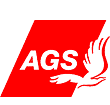Jobs in Malta

Expats seek and find jobs in both Maltese companies, foreign companies with interests in Malta, and foreign countries with interests outside of Malta. The ICT, finance, i-Gaming, pharmaceutical, and tourism sectors are particularly strong in Malta.
Most companies in Malta are small to medium in size, with larger international companies increasingly moving their operations to the island to take advantage of government incentives, such as tax credits.
Knowledge of Maltese is required for many sales, marketing, and retail jobs that target the local population. Knowledge of multiple languages is required in many tourism industry jobs. Knowledge of English is required in almost all jobs in Malta.
The most common type of jobs in Malta are permanent contract positions, however, fixed term contract positions are becoming more popular. According to Maltese law, after 4 years of fixed contract positions, a temporary employment contract has to be converted to a permanent contract.
Trial or probation periods in Malta are typically six months, unless otherwise agreed upon, during which either party can cancel the employment contract without giving notice during the first month. Subsequently, one week’s notice must be given during the trial period.
Finding a Job in Malta
Expats seeking employment in Malta are advised to visit the island on holiday or for an extended stay to connect with employers in their sector. Job searches can take up to three to six months.
There are many recruitment agencies in Malta active in recruiting foreigners to work in high-demand sectors, such as IT and i-Gaming. These recruitment agencies have a strong online presence. Generally, prospective workers submit their European format CV and create an employment profile with recruitment agencies online. Agencies then contact prospective candidates directly with potential positions they should apply or interview for. Job seekers can also search databases of available positions through recruitment agency’s web sites.
Popular recruitment agencies include Konnekt, Betting Connections, Castille Resources, and Vacancy Centre.
Vacancies are also listed in the print version of local newspapers. It is also becoming popular to advertise vacant positions online through social media web sites such as Facebook.
Job seekers can also register with the Public Employment Services Agency in Malta at the Employment and Training Corporation (ETC) in Hal Far, or at one of its job centers in Malta, or access job listings through the ETC’s web site. Job seekers can also access EURES, which contains an online vacancy database that can be searched by industry, occupation, and region.
Job Applications
Job applications should have a cover/covering letter accompanied by a Curriculum Vitae (CV). CV’s should be in standard European format, and normally up to two pages long. European format CVs can be downloaded here.
CVs should include personal details, education, knowledge of languages (under the Common European Framework of Reference for Languages, e.g. A2, C1, etc.), computer skills, areas of competence, career information, and hobbies.
Covering letters are normally no more than one page in A4 format. This provides the employer information about career intentions, educational background, professional experience, and availability.
Copies of certificates, references, and medical examinations may also be requested.
Income Tax
Income taxes for individuals range from 15%-25%. Taxation in Malta is based on progressive income brackets: the higher one’s income, the higher their tax rate.
Permanent residents in Malta pay tax on income derived from both contract employment and self-employment. Permanent residents are those who live in Malta for more than 183 days a year. Individuals are taxed on their income in Malta and overseas.
Foreign residents employed in Malta pay tax only on the income they earn in Malta.
Employers are obligated to deduct taxes from wages on a monthly basis.
Corporate tax is fixed at 35%. Reduced rates or exemptions are available for companies with low earnings. Tax credit incentives are also offered to foreign companies looking to relocate their operations to Malta.
Conventions and rights
Young Workers
The minimum age for employment in Malta is 16, which is also Malta’s school leaving age.
Young workers are those aged 16 to 18. Young workers must not work more than 8 hours a day, 40 hours per week. When more than one employer employs a young person, working hours are cumulative. Young persons are not permitted to work from 10 pm to 6 am.
Students
Non-EEA/Swiss nationals with a resident’s permit may work for up to 10 hours per week. Students require Employment Licenses to work in Malta.
Workers with Disabilities
The rights of workers with disabilities are protected by the Equal Opportunities (Persons with Disability) Act of 2000, which prohibits employers from discriminating against workers with disabilities.
Termination
The employee may terminate employment at any time. Notice periods in Malta are as follows: 1 week for contracts of 1-6 months, 2 weeks for contracts of 6 months to 2 years, 4 weeks for contracts of 2-4 years, 8 weeks for contracts of 4-7 years, and an additional week for every subsequent year of service for contracts from 7-12 years.
If an employee’s position is terminated on the grounds of redundancy, he/she is entitled to re-employment if the position becomes available again within a period of one year from the date of termination.
Useful Contact Information
Employment and Training Corporation (ETC)
Hal Far Road
Hal Far
Tel: 21654940
http://www.etc.gov.mt
etc@gov.mt
Opening Hours: 745hrs/7:45am to 1200hrs/12:00pm and 1330hrs/1:30pm to 1500hrs/3:00pm
VAT Department, Malta Office
16, Centre Point Building
Triq ta’Paris
Birkirkara CMR 02
Tel: 21499330-4/6
http://www.vat.gov.mt
vat@gov.mt
Winter Opening Hours: Mon, Wed & Thurs 1330hrs/1:30pm to 1600/4:00pm. Tues & Fri 830hrs/8:30am to 1130hrs/11:30am
Summer Opening Hours: Tues, Thurs & Fri 830hrs/8:30am to 1130hrs/11:30 am. Mon & Wed 1400hrs/2:00pm to 1600hrs/4:00pm
By Jess Gerrow, who traded city life in Canada for island life in the Mediterranean two years ago. She is a postgraduate marketing student, blogger, and freelance writer.
- My Life Abroad -
A selection of expat stories

"A fun compulsive read!"
J. Matcham, Amazon
"I strongly advise people ready to live abroad to read this book!"
Patrice, Amazon

 Entrepreneurship for the Trailing Spouse
Entrepreneurship for the Trailing Spouse
 AGS Worldwide Movers
AGS Worldwide Movers Fexco payment solutions
Fexco payment solutions 1stMove Car Shipping
1stMove Car Shipping Embassies and Consulates in Malta
Embassies and Consulates in Malta